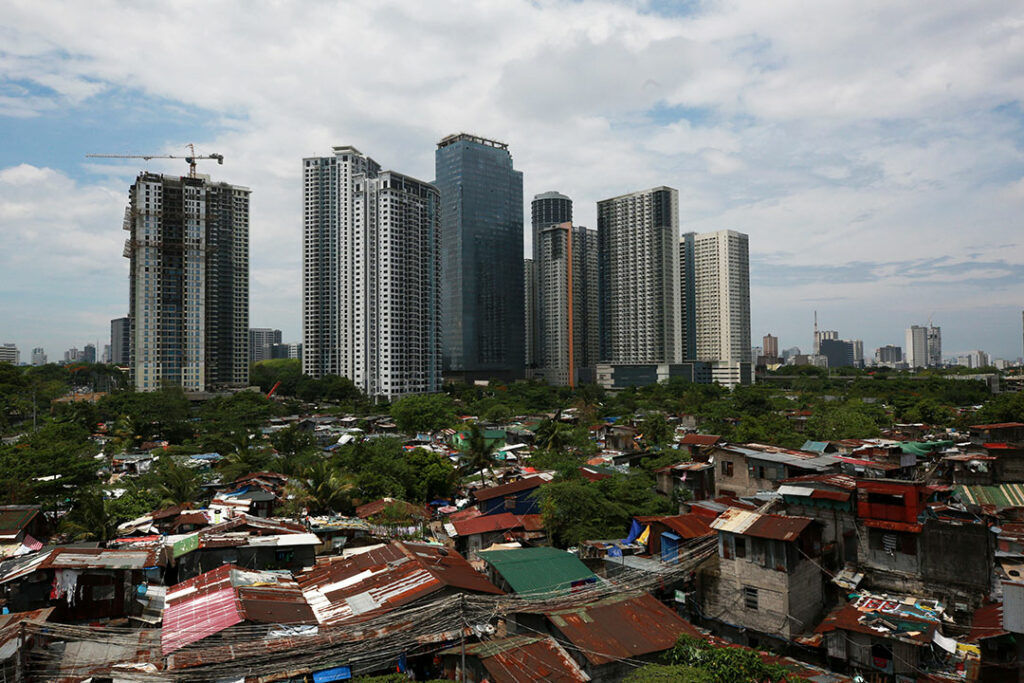




Policy Rate Updates: BSP outlook — cloudy with a chance of rate cut
 DOWNLOAD
DOWNLOAD

January Economic Update: Growth slows, prices rise
 DOWNLOAD
DOWNLOAD

Inflation Update: Up, up, and away?
 DOWNLOAD
DOWNLOAD


GDP growth may fall below target in 2024, 2025 — BSP

Philippine economic growth may fall below the government’s target this year and in 2025, as high interest rates dampen domestic demand, the Bangko Sentral ng Pilipinas (BSP) said.
“The outlook on domestic economic activity remains intact, even as the economy is projected to operate slightly below potential. Economic growth could settle below the DBCC’s (Development Budget Coordination Committee) target of 6-7% for 2024 and 6.5-7.5% for 2025,” the BSP said in its latest Monetary Policy Report.
The BSP did not provide a specific gross domestic product (GDP) growth estimate.
Latest data from the local statistics authority showed that GDP expanded by 5.7% in the first quarter, faster than 5.5% in the previous quarter but slower than 6.4% a year ago.
“The projected impact of the BSP’s policy rate adjustments is likely to peak in the second half of 2024,” the central bank said.
At its May meeting, the Monetary Board kept its benchmark rate steady at 6.5%, the highest in 17 years, for a fifth straight meeting.
The Monetary Board has raised borrowing costs by a cumulative 450 basis points (bps) from May 2022 to October 2023 in order to tame inflation.
“Higher global crude oil prices and positive real interest rates could also temper domestic demand,” the BSP said. “However, stronger net exports amid an improving global growth outlook could support GDP growth.”
Citing estimates from the Policy Analysis Model for the Philippines, the BSP said the “output gap may turn slightly negative in 2024 but will likely close in the latter part of 2025.”
“Domestic economic activity could ease as the effects of previous policy interest rate adjustments and declining real incomes, along with the possibility of tepid global growth, temper aggregate demand,” the central bank said.
“On balance, the latest assessment of the output gap indicates potential deflationary pressures going forward.”
At the same time, steady investment growth, improving jobs market and infrastructure spending may “continue to drive productivity and potential output,” the BSP added.
The BSP said that Philippine GDP is expected to pick up in 2025 “on stronger net exports and an improving global growth outlook.”
“The resilience of the global economy, despite central bank interest rate increases, has reflected the ability of households in major advanced economies to draw on substantial savings accumulated during the pandemic,” it said.
However, the BSP noted the pace of global growth is “still low by historical standards,” mainly due to high borrowing costs, long-term effects of the pandemic and Russia’s invasion of Ukraine, weak productivity growth and rising geoeconomic fragmentation.
The International Monetary Fund sees the global economy growing by 3.2% this year and next year. — L.M.J.C.Jocson
This article originally appeared on bworldonline.com





 By BusinessWorld
By BusinessWorld